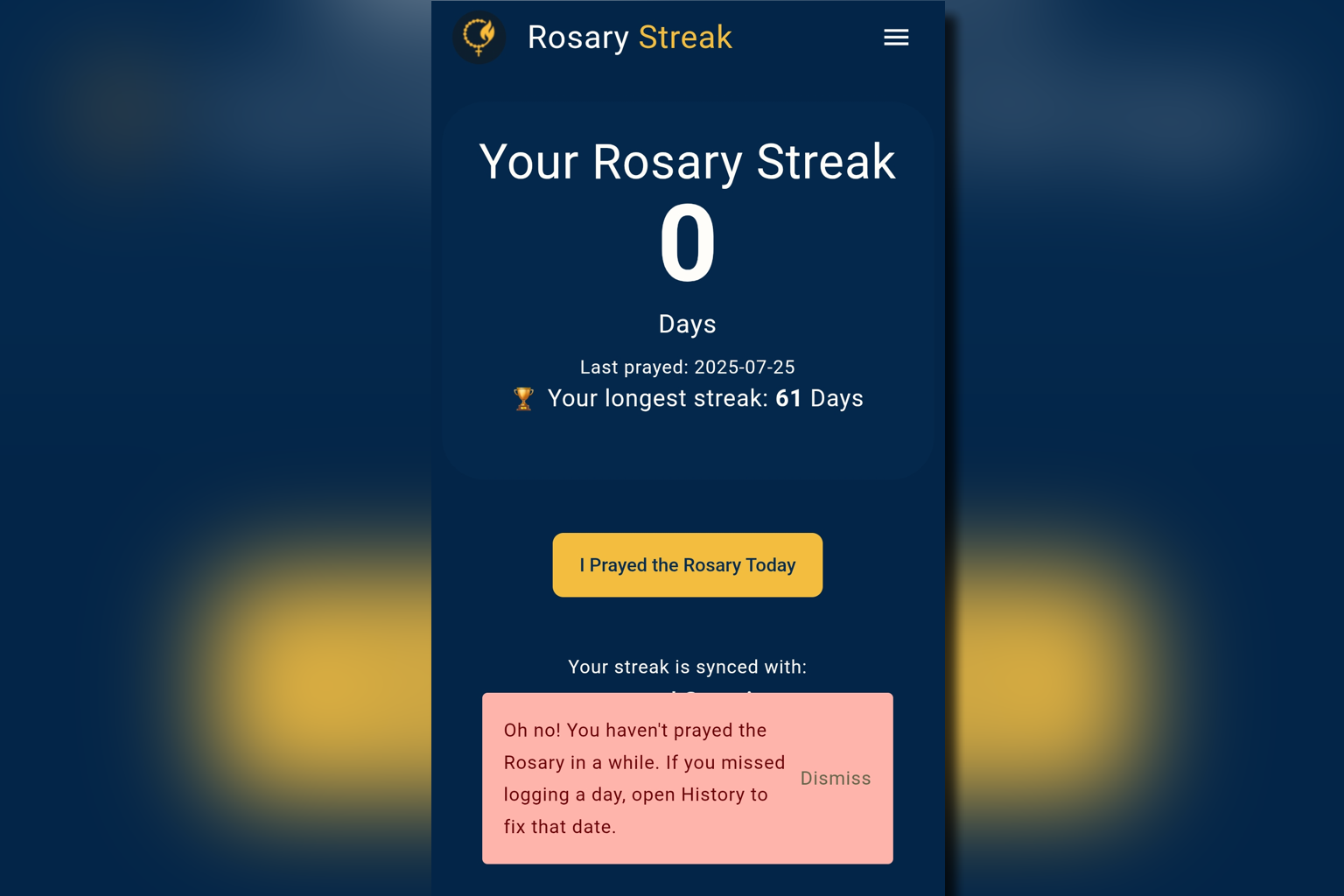Wed, Jul 30, 2025
It’s 12:05am and I’m lying in bed, nearly asleep. It’s been a good day — my first weekend at home in a month. I got some things done around the house and spent time hanging out with my wife.
Mon, Aug 19, 2024
Recently, I started on working on making RhinoSpike a mobile-friendly website. More than half of the visitors to RhinoSpike are using a mobile device, and it’s not a great experience. This screenshot shows how bad it is:
How Chrome Crushed My Dreams of Multilingual Word Game Dominance
Thu, Oct 5, 2023
Aw, Snap!
I was feeling great. I had just announced my bilingual word game, Bilingdle, on social media, and the immediate response was overwhelmingly positive, especially among my friends and family on Facebook. Several months of work in my free time were being validated by this pleasant reception. But then someone mentioned the game had crashed on their phone. Another person said the same and sent me a screenshot.
What to do when Chrome mysteriously crashes the X.org server
Thu, Mar 13, 2014
This is largely a note to myself, to find later. This has already happened to me several times and I forget how to resolve this every time. The problem is that after some type of system update of one kind or another, Chrome will start causing the X.org server to crash. This sometimes happens immediately on login and sometimes there is a delay before the crash.
Reading with Interlinear Books
Tue, Mar 11, 2014
This post was originally posted on Babelhut.
Linas Vaštakas is an avid language learning enthusiast, and he currently runs a project InterlinearBooks.com which aims to make literature more accessible to language learners. He wrote this guest post about learning languages with Interlinear texts.
Anki 2.0, Esperanto, and GitHub
Tue, Apr 24, 2012
Recently, I had become aware that Anki 2.0 was in beta through my friend Tom, who is working on making some changes to the MCD Support plugin so that it supports languages like Spanish as well as it does Japanese. Despite this awareness, it never crossed my mind that I might need to update the Esperanto Support addon that I wrote a couple years ago until I received an email from Damien Elmes, the author of Anki, that it was time to look at doing so.
Exporting Terms to Anki from Learning With Texts
Fri, Jan 27, 2012
This post was originally posted on Babelhut.
If you’ve been keeping up with the language learning scene online, you have probably heard of Learning With Texts (LWT), which is software to assist you in studying foreign language text. If this is the first you’ve heard of it, then I recommend checking out Benny’s excellent introduction to Learning With Texts , because the rest of this post won’t mean much to you if you are unfamiliar with it. This article also assumes you are aware of Anki , so if you’re not then you should read this introduction to Anki and Spaced Repetition and forget about forgetting ever again.
The Wonder of Critical Frequency
Fri, Jan 7, 2011
This post was originally posted on Babelhut.
About two weeks ago, in an effort to increase my Esperanto vocabulary, I signed up for lernu.net’s Vorto de la Tago (Word of the Day) service, which sends a daily email with, you guessed it, the word of the day. These emails are great for SRS because they include quite a few example sentences. The definitions are also monolingual (Esperanto-only, no English translations), which I think is a good thing because I notice that when I read Esperanto text I translate it to English mentally, thus slowing me down. So now I have these great daily reminders to add some new sentences to my SRS, and they’re forcing me to use the language to describe itself rather than using the crutch called English. And what did I do with these fantastic reminders?
Verifying that an MP3 File is valid in Python
Fri, Sep 10, 2010
This post is a result of many attempts at trying to find an existing solution, deciding that nothing did what I needed, and writing the code myself. Specifically, I wanted to be able to verify whether or not that a file is a valid MP3 file from Python. I did not want any dependency on non-Python code (for cross-platform reasons), nor did I need to encode, decode, play, record, or any other such operations to the file. I just needed to know if it was an MP3 or not, and that is all. Oh yeah, and the file will probably have a random file name without the .mp3 extension.
Jes, Mi Lernas Esperanton - Yes, I'm Learning Esperanto
Tue, Aug 31, 2010
This post was originally posted on Babelhut.
Consider this an admission of guilt. I am learning Esperanto . Esperanto has both its critics and proponents in the language learning community, which initially bothered me. Nobody has criticized me for wanting to learn Spanish, nor has anyone (including myself) felt the need to defend that desire. I expect that the same would be true if I suddenly decided to learn German, Hindi, Arabic, or Navajo. Yet, for some reason, Esperanto draws in critics and defenders. This has kept me from posting about it here, but now I’ve decided that my decisions don’t need to be defended, and criticisms are easily ignored.
Use tatoeba.org for mining sentences
Thu, Aug 26, 2010
This post was originally posted on Babelhut.
Usually when I am reading in Spanish, and I find a word I don’t know and can’t figure out from context, I look it up in a dictionary. Often the sentence I originally found that word in is long and/or complex, which doesn’t make it a good candidate for entry in my SRS, so I will usually enter the example sentence in the dictionary into my SRS instead. But what if there is no example sentence for that word? This dilemma happens with at least half of the words I look up. Until recently, I didn’t have a good solution. Most of the time I would just let it go and later forget the word, causing myself to look it up again.
Esperanto Support Plugin for Anki
Thu, Aug 5, 2010
So I decided to learn Esperanto, which as an avid user of the SRS application Anki, meant I needed to either enter Esperanto’s special characters (ĉ, ĝ, ĥ, ĵ, ŝ, ŭ) into my flash cards, which can’t easily be typed with the US International keyboard layout, or I could deal with the ugly “x method” workaround (cx, gx, hx, jx, sx, ux). At first, I was only creating Esperanto cards from my Linux computers at home, which let me use an Esperanto keyboard layout to type in the special characters. Pretty soon though, I found myself creating cards from my Windows machine at work during breaks. There is no Esperanto keyboard layout in Windows by default, so I tried to install some third party keyboard layouts without success. I eventually came across a program called Ek, which seemed to do the job of letting me type special characters, except in Anki where it would only type “ĉ”. So I just dealt with the “x method” and was typing words like vojagxas instead of vojaĝas. I don’t know why, but after a while all the x’s began to really bother me. I didn’t want to see mangxi in my flash cards, it just doesn’t seem as natural as manĝi does. So I did what any other software developer would do….


